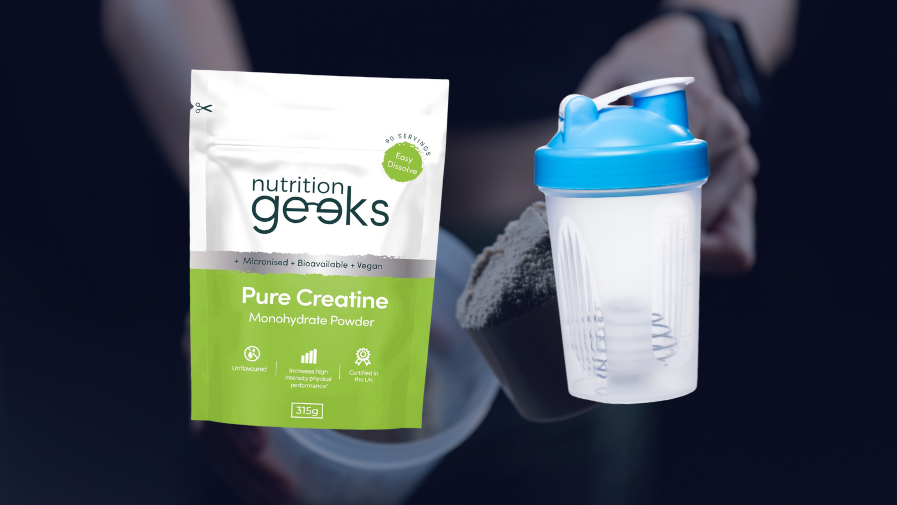
Is creatine good for older people?
Benefits, safety, and best types to buy
The answer is yes, creatine is good for older people. It is an excellent supplement to take when taken appropriately, especially for older adults. With support for muscle maintenance and bone health, it’s a good thing to consider if you struggle with mobility or falls.
What is creatine?
Creatine is a chemical which is produced in the body and it is primarily found in the muscles and brain. While most people get low amounts of creatine by eating seafood and red meat, larger amounts are found in synthetic creatine supplements. It can also be referred to as creatine monohydrate. Your pancreas and kidneys make around 1 gram of creatine each day. Creatine is one of your body's natural energy sources.
Synthetic creatine supplements are a safe and well-researched supplement that enhances energy in your muscles and supports recovery, as well as brain health. Taken daily, (3-5g per day), it is most effective when taken continuously with routine.
It can come in either a tablet or a powdered supplement. When using a powder supplement, it can be added to water, juice or any liquid. However, it would help to purchase a shaker bottle for your creatine to avoid a lumpy texture.
Is taking a creatine supplement good?
Synthetic creatine has notable positive effects when taken, especially as someone ages or has health problems. However, it is always important that you check with a trusted doctor or clinical professional, that you can take the supplement. For example, those with kidney problems should only take it under medical supervision.
Since it is one of the most well-researched supplements, this makes creatine hugely effective in supporting your health. The main reason people take it is because it helps muscles produce more energy, so you can train harder and recover quicker.
However, creatine’s benefits in older age aren’t limited to muscles and bones. Research suggests it may also help improve cognitive performance, potentially reducing age-related cognitive changes. For example, according to a 2023 study, creatine may help support memory, especially in people between the ages of 66 and 76 years.
Is creatine good for older people?
Creatine has a number of benefits when taken continuously with a routine:
- Muscle & Strength: As we age, we naturally lose muscle mass and strength. Research shows creatine supplementation, especially when combined with resistance or strength training, can help older adults maintain or even increase muscle mass and strength.
- Cognitive Benefits: Some studies suggest creatine may support brain health, potentially improving memory and mental performance in older adults, particularly during stress or fatigue.
- Bone & Functional Health: Creatine may support better mobility, balance, and overall physical abilities, reducing fall risk in older people, which is important as you age.
Creatine is generally safe for healthy older adults at 3–5 g per day, with only mild side effects like bloating or an upset stomach. Those with kidney problems should avoid it without medical advice, and good hydration is important.
Which creatine would you recommend buying?
You have to be careful when buying creatine. It can be best to buy flavorless to avoid having added sugar, and best to get micronized too, although alot comes down to personal preference.
This is the best creatine here to buy>

See here more information about buying the best creatine>
*Please make sure to do your research and check with a professional, to make sure you can take this supplement before purchasing or using. We have used supported information for this blog, but we advise you do your own research for you or your loved one before buying*

